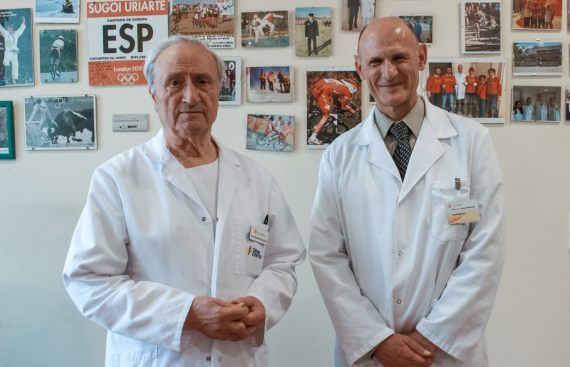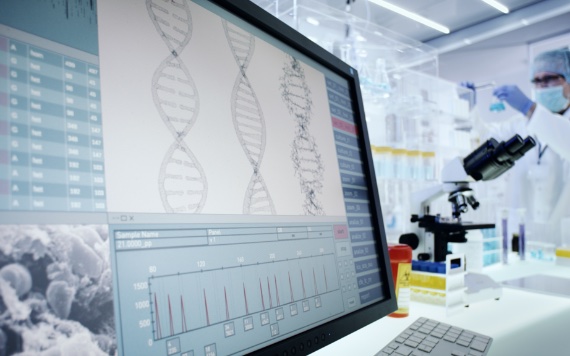Genetic modification of human embryos is arguably the most transcendental decision facing humankind since the origin of man.
Indeed, for the first time in the astonishing journey of known civilization since the appearance of life on Earth, we hominid primates are in a position to deliberately alter the course of our own species, engendering species other than human, thereby consummating the self-immolation of homo sapiens.

Genetic cannibalism? Science fiction? Sensationalism? (…) No. It’s science. Translational medicine.
The sequencing of the human genome and the refinement of gene editing techniques will mark a turning point in the history of evolution.
The advent of a new Post Sapiens lineage, the Homo Mutant (HM), will trigger a genetic revolution of the species with an uncertain outcome. With time, we will end up crossing paths with characters more exotic than the aliens that frequent the Star Wars canteen, and with more monsters of impossible categorization than in the films of Guillermo del Toro.
We are now in a position to alter evolution, instead of patiently waiting for nature to take its course and fate to work accordingly. Charles Robert Darwin’s extraordinary legacy, which seemed unshakable per saecula saeculorum, may have had its day. We no longer depend on chance, evolution, mutation or natural selection.

Nothing will ever be the same again from the day when gene therapy, instead of being limited to somatic cells (any cell in the body, with the exception of sperm and eggs), knowingly ignores the “no trespassing” sign and is applied to reproductive cells, i.e., germ lines.
One day in the not too distant future, we will be able to successfully deal with devastating diseases, incurable today, or even eradicate them completely. But we will also be in a position to change the human species, creating species other than Sapiens, either supermen like the Marvel heroes, or borderline beings, diminishing, for example, cognitive capacity in favor of physical attributes alone.
Yet the question hovering in the air is as simple as it is difficult to answer: should we do it? What is the price we are willing to pay, and what are the risks we are willing to take?
It is in our hands to decide whether to sign the death certificate of our own species, because the day we sign the ‘informed consent’, there will be no turning back, since the changes will be transmitted to our offspring.
That is why it is so important, as Professor Juan Carlos Izpisúa suggests, that society as a whole, and governments in particular, open up and engage in the urgent debate on the pros and cons of gene manipulation. It is time to establish the rules of the game before it is too late.
Jennifer Doudna, Nobel Prize winner in Medicine and Physiology, shares the same concern. In Walter Isaacson’s excellent biography (The Code Breaker), she candidly admits that from the moment scientists used CRISPR (the molecular scissors) on primate embryos to create the first genetically engineered monkeys, she was already wondering how long it would take for some unorthodox scientist to do the same in humans.

If it can be done (and it can), it will indeed be done, if it has not already been done. This is because it is very likely that someone, somewhere in the world, has altered the genome of our species, that is, the genetic composition of mankind. In other words, it is very likely that a primate belonging to the hominid family has already been born, which is not of the Sapiens species, but of another clade, of another lineage, of another evolutionary family.
Professor Pedro Guillén, author of the prologue to The Last Sapiens, argues that hampering science and progress is foolishness. No censor has emerged unscathed from the judgment of history. But immediately afterwards he adds that to attack human dignity would be an unforgivable aberration that would take an unpayable toll on humanity.
There are more than 10,000 monogenic disorders, caused by dysfunctions in the DNA sequence of a single gene. Would anyone be able to understand why, if we could correct the functional disorder of the gene in question, i.e. its mutation, we could not put an end to cystic fibrosis, hemophilia A, spinal muscular atrophy or sickle cell anemia?

What could be wrong or undesirable behind any noble effort to overcome aging, physical and mental decline, loss of faculties, generalized deterioration, ailments and any other kind of diseases associated with old age and death?
Whatever the final decision we make, I dare say that we are witnessing the irremediable decline of the human species and the morning crepuscule of a new species.
The world will soon cease to be as we know it, and will most likely be very different from the one we could have ever imagined.
José Antonio Ruiz
Nebrija University, Madrid, España
Bibliography
ARSUAGA, Juan Luis y MARTÍNEZ, Ignacio, La especie elegida, Destino, Barcelona, 1998.
DARWIN, Charles, On the Origin of Species, John Murray, Londres, 1859.
DOUDNA, Jennifer, STERNBERG, Samuel, Una grieta en la creación, Alianza, Madrid, 2021.
ISAACSON, Walter, El código de la vida. Jennifer Doudna, la edición genética y el futuro de la especie humana, Debate, Barcelona, 2021.
LÓPEZ-OTÍN, Carlos, La vida en cuatro letras, Paidós, Barcelona, 2019.
MONTOLIU, Lluís, Editando genes: recorta, pega y colorea, Next Door Publishers, Pamplona, 2018.
PÄÄBO, Svante, El hombre de Neandertal. En busca de genomas perdidos, Alianza, Madrid, 2014.
WATSON, James, ADN. El secreto de la vida, Taurus, Madrid, 2018.
WILMUT, Ian, CAMPBELL, Keith, TUDGE, Colin, La segunda creación. De Dolly a la creación humana, Ediciones B, Barcelona, 2000.
Comments on this publication